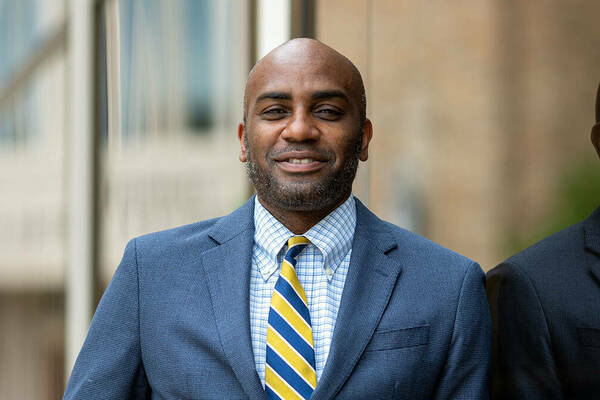Ranjodh Singh Dhaliwal examines relationships between technology, society, and culture, including how ideologies — consciously or unconsciously — are encoded into computer hardware and software and can perpetuate systemic harms.
For his current book project, Rendering: A Political Diagrammatology of Computation, the Ruth and Paul Idzik Collegiate Assistant Professor of Digital Scholarship and English, examines the anatomy of a computer.
“With each single object that I get out of breaking open that thing — the CPU, the memory stick, the graphics card, the fan, that is inside our computers — I ask what kind of thing in the world is this object either replacing or changing. But not specifically just in technical terms, in social terms, in cultural terms, and political terms,” he said.
“If you really start thinking about these interactions of the outside world, in the inside world, you will be more careful, I think, in the way you design technologies, [and] in the way that you think about the ethical implications of what technologies should or should not even be used.”
The concurrent assistant professor in the Department of Film, Television, and Theatre also makes video games, including Frack! The Game, a strategy contest that takes prompts from real-world incidents to explore the ethical, socioeconomic, and environmental landscape of injecting liquid at high pressure into the earth to force open fissures and then remove oil or gas.
Dhaliwal’s courses include Computation and Culture; Critical Digital Studies; and Master’s Media: Race, Class, and the Technical Production of Difference.
“Notre Dame has a really strong focus on education and the liberal arts and research in liberal arts that does not necessarily take its boundaries as givens,” said the faculty affiliate with the Lucy Family Institute for Data & Society, Notre Dame Initiative on Race and Resilience, Idzik Computing and Digital Technologies Program, Notre Dame Technology Ethics Center, and the Program in History and Philosophy of Science.
“It's an exciting place, specifically for interdisciplinary research owing to its tradition in combining fields and disciplines that digital humanities might now just be one part of,” he said.


